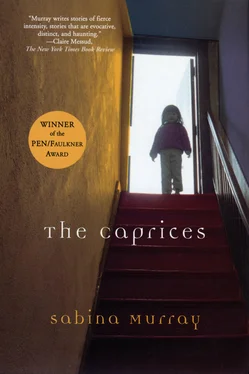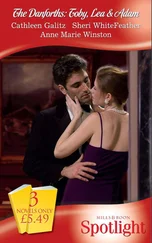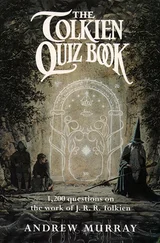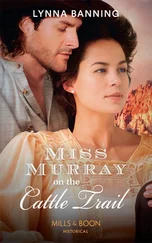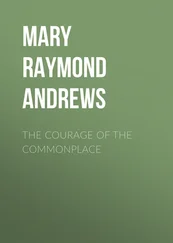Perhaps it was the fact that Salas hadn’t slept in over seventy-two hours, but the thought of facing that man bothered him deeply. He would rather have faced MacArthur. Salas was feeling unfamiliar pangs of guilt. He knew the war was lost, and now, no longer secure in the role of victorious naval commander, he had been considering his worth as a man. Salas watched unnoticed as the doctor wrapped the wound, which was badly infected — swollen a dark purple and wet with pus. The injured man, another Filipino, waved flies from his eyes in a passive way. He shook his head, which the doctor did not see. Salas took this to mean that he knew that tending his injury was hopeless, but still appreciated the doctor’s gesture. Then suddenly, without warning, the doctor looked up. Quickly, he averted his eyes, but Salas knew he had been recognized. From the pain in the doctor’s eyes, Salas also knew that his son had died.
• • •
Why had the doctor appeared to him? Salas pondered this thought. His years of living among Catholics had taught him something about notions of divine retribution. Maybe as long as Salas had lived the loneliest of lives, the most degraded of existences — someone living as someone else — the doctor had slept in death. But now, had Salas’s new hope awoken the doctor? Did he feel the need to remind Salas that despite his great wealth, he would never escape having allowed the death of an innocent child? This was unbelievable and stupid. Salas chastised himself for such thoughts, which came from living long years with sentimental and superstitious Filipinos. More likely, his tension had unhinged him, shaken up the ghost not from his burial place but from some dark corner of Salas’s mind. And in a way, hadn’t Salas even envied the doctor? Before, he had not admitted it, but the doctor’s deep love for his child was something that Salas had never known. Love in his life had always been superseded by duty and the need to survive.
Salas had the taxi drop him a couple of blocks from Plaza Miranda. He held a briefcase in his left hand, which contained the key to the safe deposit box and a piece of paper with the box’s location. All had been carefully arranged. Salas heard a singing in his ears that he hadn’t heard since the old days when, on the deck of a beautiful ship, he’d marked the time between heartbeats hoping the torpedo would miss, that the plane would be plucked from the sky. Now he was merely crossing a street. Salas smiled. He had always thought that singing was his concern for his men. Now he realized it was concern for himself. He took a seat on the park bench indicated in his instructions and began to wait. The figure agreed upon was five million pesos, which was but a fraction of the worth of the maps. Salas had agreed because the gold had become useless to him.
More and more he had been thinking of Señor Ocampo and his plantation on Negros. That was the life that Salas would now pursue. He would become a gentleman with land, serfs, and position. This briefcase that held the location of the maps was the last vestige of his Japanese identity. By ridding himself of it, he would be washed clean, truly born anew. He was older, but not old. Maybe he would even find a pleasant young woman to pass the time with. He pictured himself on a broad veranda with a clear view to the sea, the palm trees bowing gently in his direction. He sat at a table playing cards with this woman, who had her hair pulled up in a tidy bun. Maybe there would even be a child. Why not? A little round-faced boy with a perfect shelf of bangs falling right above his brow. Kamichi Ayao, once the naval commander, would now be Carlos Salas, the gentleman plantation owner.
Plaza Miranda was a large, tidy field of trim grass, worn to mud in places, and rimmed with trees. A stage was set at the southern end. An arc of high-backed wooden chairs awaited the invited guests. A crowd had already begun to gather around the stage — students mostly, it seemed, earnest in bell-bottom pants. Salas found them amusing, then realized that at that age, he had been in charge of a thousand men. He sighted a man across the park standing by a tree in studied nonchalance. He was wearing a jacket, although it was very hot. One of the president’s thugs, thought Salas. He looked around, wondering which of the liberal hopefuls was scheduled for execution. No one was on the stage except for a youthful man in jeans, who gave the microphone a few silent taps, then shrugged his shoulders to an invisible technician. Salas was halfheartedly searching for the technician when Balmaceda appeared almost magically by his side.
The years had not been kind to Balmaceda. He had never been handsome and now — at this proximity — Salas saw that he was yellowed and sick. Balmaceda gave Salas an almost imperceptible nod and the two men shook hands. Balmaceda sat down next to Salas. He rested a briefcase by the bench, which would be switched with Salas’s briefcase.
“Would you like to check the contents of my briefcase?” Salas said.
Balmaceda shook his head. He was fretting. Salas caught him looking at the man standing across the park. The man had his hand inside his jacket.
“Ayao, leave,” Balmaceda whispered. “You definitely will not leave with the money, but if you’re quick, you might leave with your life.”
Salas looked down at his shoes. “My name is Carlos Salas.”
Balmaceda looked over at his countryman in disbelief. He nodded again, so slight a motion that only one who knew him could read it as an intended gesture. Balmaceda got up, taking Salas’s briefcase with him. He did not seem to want to leave. In his eyes, Salas saw the years of loneliness and confusion that separated this meeting from their last. “You have found men to give you orders,” Salas ventured, half smiling. He actually meant it as a joke. Balmaceda took the insult silently, but presented his back to Salas. He left with small hurried steps.
Salas inched off the bench, but he was too tired to get up. Then he caught sight of a yellow balloon floating just above the heads of the crowd. Someone had tied the balloon firmly to the wrist of a little boy, whose large black eyes were fixed on it. The balloon bounced spiritedly, tugging at the string, a prisoner of the boy’s slender wrist. At this moment, the balloon rivaled the moon and the stars and all the orbs spinning and spitting in the deep blue folds of night. It captivated him as he had not been captivated in a very long time. Then the little boy was staring at him; his free arm was raised to point at Salas and his small mouth was open in a gesture of wonder. Salas saw the father grab the boy by the shoulders and begin to drag him away.
Salas wanted to protest, but he did not know why. He was feeling queer and the sound had drained from the landscape in a way that awed and terrified him. Something was wrong. Salas felt a throbbing pain in his abdomen, a pain he had not felt in years. Could this be his appendix? But his appendix was gone. This was merely the ghost of it. He patted his stomach and his hands came up covered in blood. The man in the jacket was standing a mere twenty feet away. Salas had been shot. Soon he would be dead and there was nothing he could do about it.
The blood poured out of his side and onto the packed mud around the bench. I am dying, he thought to himself. I am dying my second death. He looked at the awed faces of the crowd and raised his bloodied hands to them. “My name is Carlos Salas,” he whispered. But bullets had begun sputtering by the stage and then there was the explosion of grenades. The president’s thugs had started a massacre. The protesters were scattering to the far edges of the plaza, running from the rain of bullets. They did not care about rubies or gold. They did not care about the man dying by the park bench. And all around were parents gathering their children in protective arms, finding places to keep them safe.
Читать дальше
